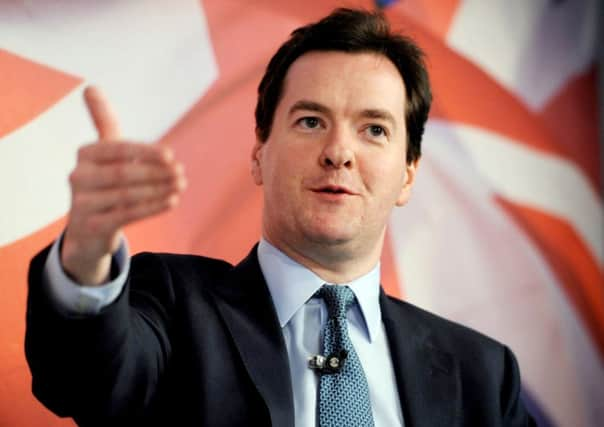Deficit reduction could become legally binding


George Osborne is preparing to enshrine in law the coalition’s plans to eliminate Britain’s underlying budget deficit by 2017/18.
The move - expected to be unveiled around next week’s Autumn Statement - was being seen at Westminster as an attempt to set a trap for Labour.
Advertisement
Hide AdAdvertisement
Hide AdBy staging a pre-election Commons vote on the deadline to balance the nation’s books, Mr Osborne would hope to put Ed Miliband’s party on the spot by forcing them to either accept Tory and Liberal Democrat plans or appear soft on the deficit.
While the two coalition parties are agreed that the cyclically-adjusted current deficit should be eliminated by 2017/18, shadow chancellor Ed Balls has so far said only that he will aim to run a surplus on the current budget “as soon as possible” and by 2020 at the latest.
A report suggested that Mr Osborne may seek to enshrine the 2017/18 target in law by proposing a change to the Government’s fiscal mandate, which currently requires him to bring the current deficit into balance on a five-year rolling timetable.
Aides of the Chancellor described reports of his plans as “speculation”.
Advertisement
Hide AdAdvertisement
Hide AdLabour has already questioned Mr Osborne’s success in tackling the deficit, and was yesterday seeking to move the debate onto the impact of austerity on UK wages.
Shadow Treasury chief secretary Chris Leslie hit out at the Chancellor for relying on “slogan heavy, content light trickle down economics” that will not tackle the deficit or raise living standards.
Mr Leslie told MPs: “The Chancellor has to realise that a low wage, low productivity economy isn’t going to deliver the goods.
“After all the OBR are also forecasting that growth is going to slow down next year.
Advertisement
Hide AdAdvertisement
Hide Ad“The OECD said yesterday that it’s cut its forecast for growth for this year and next year.”
Treasury minister Priti Patel defended the Government’s record and said the British public were “still experiencing the impact” of the economic policies of the last Labour government.
The Tory frontbencher added: “And once again - rather than coming to the House to apologise for the economic carnage they left and they created, they have the audacity to come to the chamber today and say to us ‘why are you not clearing up our mess quickly enough?’”